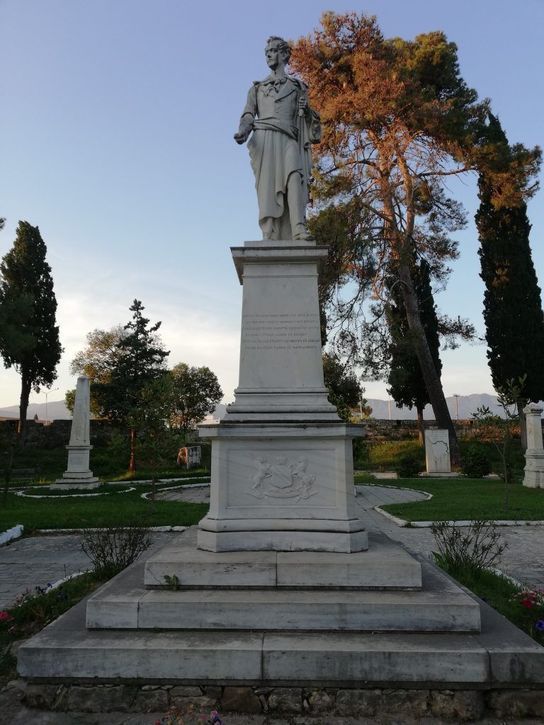Nicopolis was somewhat depressing in that it brought home to me just how ignorant I am. I had heard of Anthony and Cleopatra through Shakespeare at school, and knew that Cleopatra came from Egypt, had a needle and topped herself with help from an asp.
I had never heard of Nicopolis, which is where everything happened. It was founded by Octavius, the son of Julius Caesar, after his fleet had defeated the fleet of Anthony and Cleopatra at the Battle of Actium (a short distance from Nicopolis) in 31 BC. Octavius then ended the Roman democratic tradition and declared himself as the Emperor Augustus. Mark Anthony and Cleopatra fled to Egypt.
After Rome’s conversion to Christianity, the capital of the Christian world was moved to Constantinople and Nicopolis declined. It was frequently attacked by the Vandals and Visigoths and during the Byzantine era a wall was built round a much smaller city; this was the wall whose Western Gate we slept near last night. The city was finally dstroyed by the Bulgars in 1034 and abandoned.
We drove off in the morning thinking we had seen it all, and noticed some tour buses at the side of the road. A huge group of Albanian students were being shown round the remaining basilicas of the Roman era where some glorious mosaics were on display. The students re-awakened our regret in having left Albania, a country of warm-hearted people, stunning scenery, delicious food and interesting historical sites.
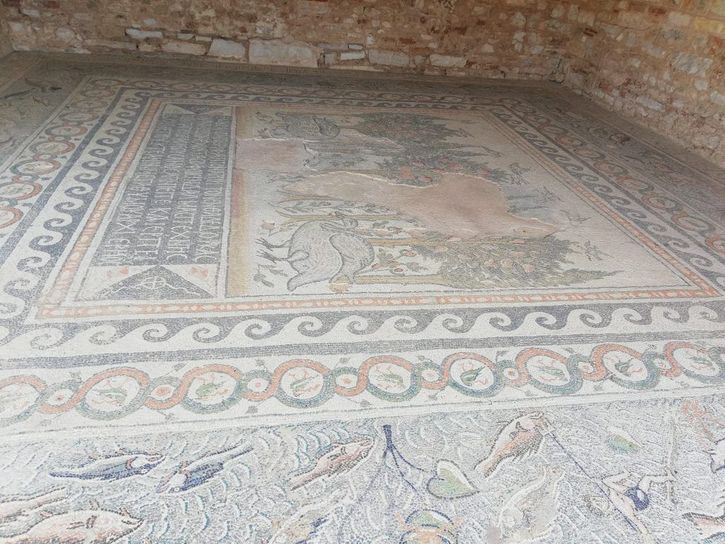
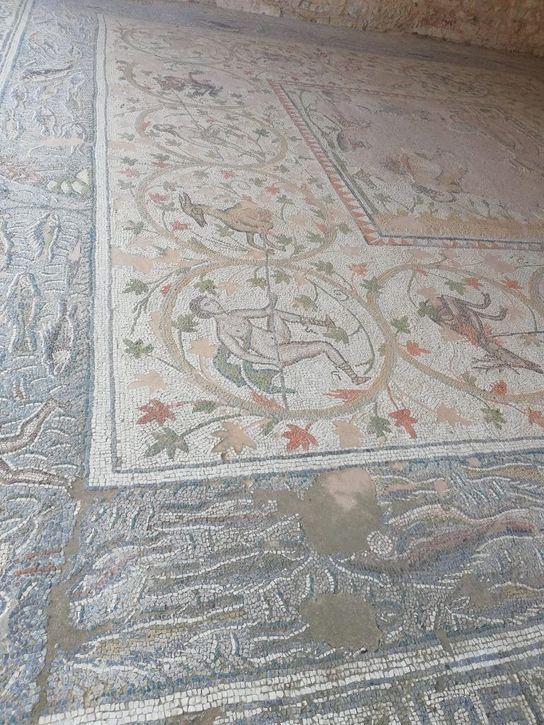
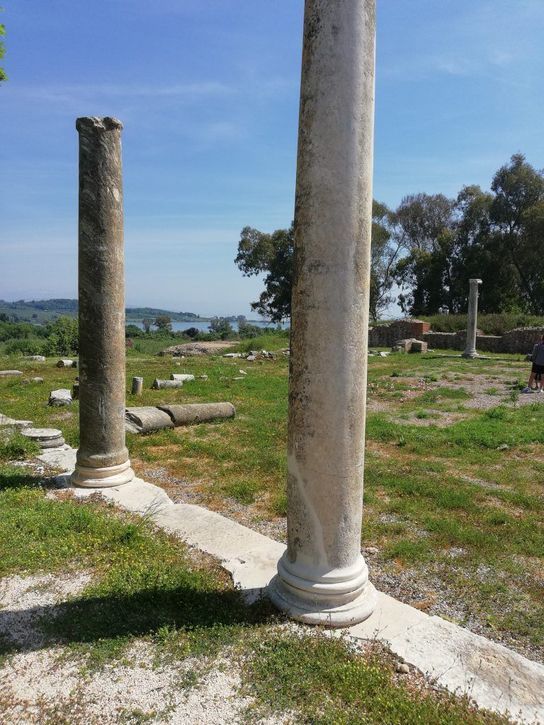
Our entrance tickets also permitted entry to the museum in Preveza which was hard to find and we were on the verge of giving up when we saw the rather small sign. The museum was magnificent with lots of interesting exhibits beautifully displayed.
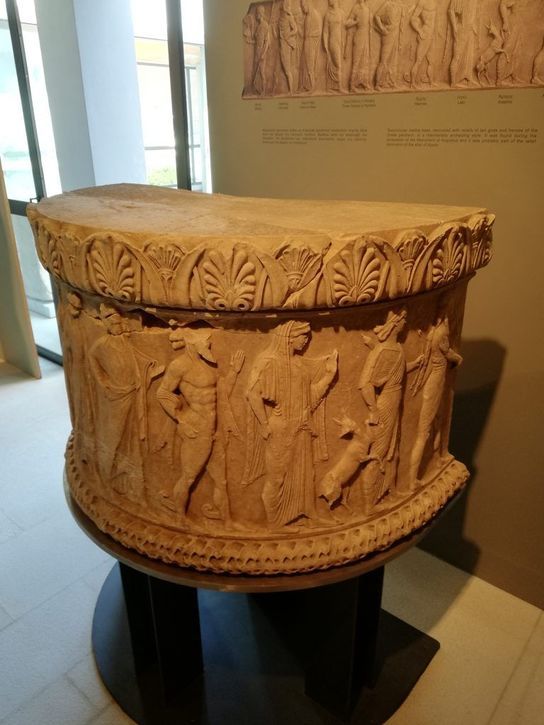
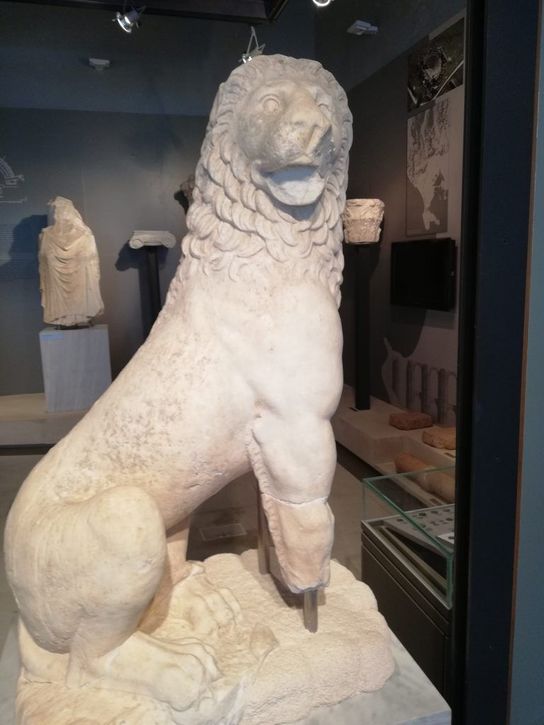
In the afternoon we drove off through an underwater tunnel to Actium and stopped at a roadside cafe for dinner. I made the cardinal mistake of asking the very jolly Greek owner if he sold kebabs. NO. He makes souvlaki, which I guess is Greek for “kebabs”. They were delicious, as was the huge salad he made for us. So evidently no hard feelings!
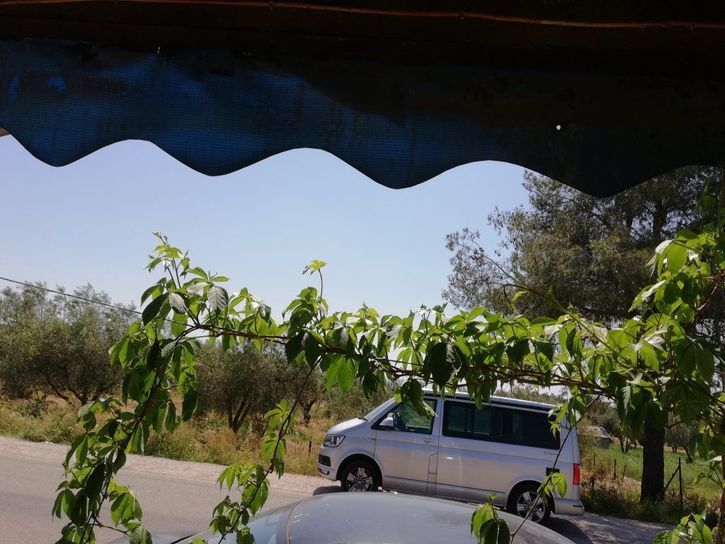
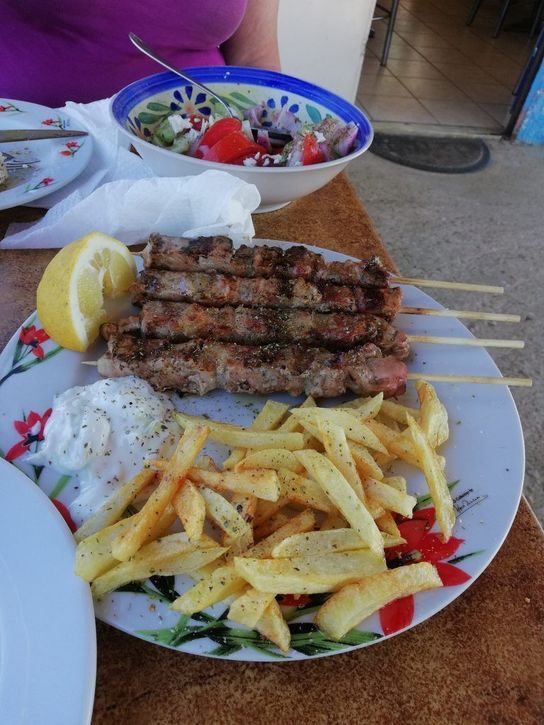
We drove on to Mesolongi, which means “among the lagoons”. In 1821 the town became a centre of resistance to the Turks during the War of Independence. In 1824, Lord Byron (who I remember from school for writing some shite poetry) came to fight for the independence of Greece but died of a fever in April. His heart lies beneath his statue in the Garden of Heroes. Nearby, the Gate of the Exodus is a tribute to those who fought the Turks in 1826. 9,000 Greks were killed in battle here and those that survived detonated their explosives as they were taken prisoner. This self-sacrifice lead to the Turks surrendering Mesolongi in 1828 without firing a shot.
